Can iPhone do better? Android activations are 31.5M per quarter

This afternoon, Google announced first quarter results, ending March 31. The search and information giant reported $8.58 billion in revenue, up 27 percent year of year. Operating income was $2.8 billion and net income $2.3 billion, or $7.04 a share. Google missed analysts projections -- consensus was $8.11 per share -- but Android could just overshadow the Street's and shareholders' disappointment. Say, Apple, watch your back.
It seems like whenever some Google executive opens his or her mouth to talk about Android activations, the number goes up yet again. During today's earnings: 350,000 activations per day, which works out to about 31.5 million over 90 days. Now compare to Apple. Analyst consensus is 16.64 million iPhones shipped during first calendar quarter, which for Apple was 90 days long. That works out to 188,889 activations per day.
Is web browser development moving too fast?

The entrance ramp to what was once called the Information Superhighway is lined with new web browsers. No sooner than a major new version is announced, out pops an alpha or beta of its successors. Google set the pace, releasing 10 Chrome versions since December 2008. Now Microsoft and Mozilla are ramping up development cycles. But is that really a good thing?
Let me put it another way: Is your Web experience all that much better today on your primary browser than it was two years ago? Three? What about upgrades? Do you like the frequency of them? Do they shatter your plugins? Please answer in comments, with some specifics.
iPad kills first quarter 2011 PC growth

Can we now finally agree that iPad is in fact cannibalizing PC sales? Seriously so? There is plenty of debate, not a lot of consensus and a whole lot of resistance from Betanews readers. It's time to end the denial, and preliminary Q1 2011 PC shipments from Gartner and IDC are reason enough.
Globally, PC shipments fell 3.2 percent year over year during first quarter, according to IDC, while Gartner put the decline at a less anemic 1.1 percent. Gartner had predicted 3 percent growth, while IDC expected 1.5 percent growth. Manufacturers shipped 84.3 million PCs in the quarter, according to Gartner, and 80.6 million by IDC's estimate.
These guys are crazy to say Microsoft is tablet DOA through 2015

The strangest thing happened today. Not one, not two, but three stories showed up in my RSS feeds making the same cockeyed assertion -- that Gartner's recent media tablet forecast shows the analyst firm doesn't see Microsoft releasing a tablet/tablet OS anytime soon and certainly not by 2015. Someone is seriously confused.
The first of these stories posted on April 11. It's a report by Larry Dignan at ZDNet's Between the Lines blog: "Gartner: Microsoft will still be a tablet no-show in 2015." As it happens, I don't subscribe to the blog's feed, which is major reason I didn't see the post sooner. The story showed up in a news alert for keyword "Microsoft" overnight.
Microsoft unveils 'Mango' -- next major Windows Phone version
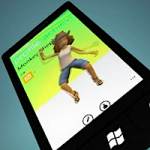
Microsoft's MIX11 Day 2 is perhaps more important than the first. Today, Joe Belfiore took the keynote stage to discuss the next Windows Phone update, codename "Mango," which will be "available to all current users of Windows Phone" and on new handsets, he said. Developer tools are coming next month.
Microsoft plans to release Mango in autumn, adding support for 16 additional languages. The number of countries where Windows Phone apps can be submitted will increase from 30 to 36. Applications will be available to download or buy in more countries -- 25 up from 16.
Microsoft bulks up MSDN subscriptions with Azure services
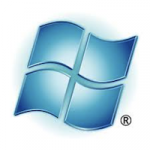
Do you subscribe to Microsoft Developer Network? Then perhaps you received the same email as I got late yesterday.
"Effective immediately: Windows Azure benefits have been granted to Visual Studio 2010 Professional with MSDN subscribers. Windows Azure benefits have been expanded for Visual Studio 2010 Ultimate with MSDN and Visual Studio 2010 Premium with MSDN subscribers."
Microsoft debuts IE10, announces PDC 2011 dates

The wait is over. Microsoft's MIX11 conference kicked off today in Las Vegas, with Dean Hachamovitch's opening keynote. Hachamovitch is a Microsoft corporate vice president and the man with a plan when it comes to Internet Explorer.
During MIX10, Hachamovitch debuted the IE9 platform, which got its official release last month. Today, along with Windows divisional president Steven Sinofksy, he debuted IE10 platform. "We're about three weeks into development of IE10," Hachamovitch said. Hachamovitch's clothing foreshadowed what was coming, about half-way through the keynote. He wore a T-Shirt with "Ten,", where the Internet Explorer logo replaced the "e." In another surprise move, Hachamovitch announced that an IE10 preview is available now at the Internet Explorer Test Drive website.
Can you blame iPhone for this? Cisco is closing Flip Video camera business

Somebody surely will blame iPhone in today's analysis, although the move reflects broader problems Cisco is looking to fix. Hey, the dot-com boom of the 1990s, when Cisco router sales soared, is long over.
"We are making key, targeted moves as we align operations in support of our network-centric platform strategy," Cisco CEO John Chambers said in a statement. "As we move forward, our consumer efforts will focus on how we help our enterprise and service provider customers optimize and expand their offerings for consumers, and help ensure the network's ability to deliver on those offerings."
Do Bloomberg Businessweek app and iPad click?
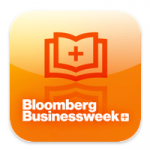
For all the griping about Apple's restrictive subscriptions plan, news organizations are beginning to embrace it. News Corp. debuted tablet-only "The Daily" in early February. The New York Times ended March like a lion, with new paywalls that included an iPad subscription. Yesterday, Bloomberg Businessweek app debuted on Apple's App Store, also with subscription pricing.
For this reviewer, the $2.99 monthly price is the most exciting thing about the app. Definitely it's a price I'd like to see more weekly magazines adopt. I'd ditch print The New Yorker, which costs me 29 bucks for a year, for iPad digital version, if available for three bucks a month. Last I checked, the magazine was available only per issue -- for $3.99. Get a gun so I can shoot the dog, too.
Would you cut cable for Netflix?

This morning, I tweeted San Francisco Chronicle article "1 million homes cut cable, switch to antenna, Web," which showed up in my RSS feeds. The story is actually three days old. A surprising number of people tweet-replied that they had cut the cable, completely or partially. I've been thinking about doing the same and wondered about Betanews readers. Would you go or have gone from cable to online video streaming (from networks and services like Hulu or Netflix) and over-the-air HD broadcasts?
You can answer the question in comments or email joewilcox at gmail dot com. I'll be swapping out that email address in a day or so as I seek to create, at least temporarily, a Google-free zone. Messages will forward after the switch. Your answer could benefit other people considering a similar move, but struggling to cross that psychological barrier of "What will I give up?"
Apple's iOS will be most popular media tablet platform through 2015

Are you thinking of developing apps for Honeycomb, or perhaps are waiting to buy an Android 3.0 tablet? Perhaps you should reconsider iPad. Gartner claims that Apple's iOS will dominate the media tablet operating system market at least through 2015. If the analyst firm is right, Apple's tablet -- and broader mobile platform -- will be the premiere choice for the foreseeable future and the one where the larger number of apps will be.
Of course, as I've been repeatedly writing, the categories media tablet and smartphone are in such huge flux, making any prediction is questionable at best. However, with iPad selling so well and most Honeycomb tablets MIA until at least summer, this forecast is more credible than Gartner's predictions about smartphones in 2015 -- at least in the short term.
7 things Microsoft should do at MIX11 and probably won't
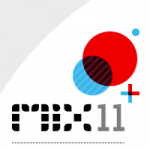
Microsoft's big web developer event, MIX11, unofficially begins tomorrow, with the big action taking place from April 12-14 in Las Vegas. It's Microsoft's most important MIX ever, because of the user interface and user experience (UX) changes accompanying the tumultuous move from the PC era to cloud-connected devices. Then there is Microsoft's increased emphasis on making you the natural user interface for all CPU-driven devices.
This year's keynoters include three important Microsoft execs: Joe Belfiore (Windows Phone), Scott Guthrie (.NET development) and Dean Hachamovitch (Internet Explorer). Sessions cover a wide range of Microsoft development tools or platforms, including Azure, IE, Silverlight and Windows Phone. Like the last two years, attendees can expect to hear lots about natural user interfaces, cutely referred to as NUIs.
Is Microsoft dead meat without a tablet?

Or should that be goose is cooked? Perhaps you have a better cliché.
It's a good week to end with the question. On Tuesday, Gartner told CIOs to get off their butts and start adopting tablets right away. Today, a Google AdMob survey revealed that 28 percent of tablet owners have made the device their primacy PC. Gartner's recommendation cuts into Microsoft's core business. The tablet survey foreshadows dramatic consumer, and eventually business, behavioral changes ahead.
AdMob survey shows 28% of tablet owners use device as primary PC

Google is putting its AdMob acquisition to good data analysis use, releasing some fascinating findings about tablets. A March survey of 1,430 (presumably) tablet owners reveals that the majority (77 percent) use their desktop or laptop PC less after buying the device. Twenty-eight percent use the tablet as their primary PC. A tablet may not be a PC by definition, but it's functionally equivalent enough for some people.
Like I wrote in February: "The PC era is over."
Bing for iPad rocks
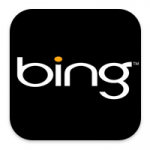
Earlier today, Microsoft released its Bing app for iPad -- and, whoa is it beautiful. The iPad screen grabs here are poor representations of how good this app looks and how functionally useful it is. Bing for iPad is so delish I could lick the screen. Did I mention that it's useful? I'd pay, even if Microsoft charged a buck ninety-nine.
Microsoft doesn't get the credit deserved for applications development. The company seems to do its best work when freed from Windows. Yes, that's a criticism. Windows is a ball and chain for Microsoft developers. Office for Macintosh is one of Microsoft's best applications, and it's exceptional among Mac software titles. Xbox and Xbox Live also show what Microsoft developers can do when their creative juices are freed from Windows. Kinect is even better example, and Bing for iPad is another.
Joe's Bio
Joe Wilcox is BetaNews executive editor. His motto: Change the rules. Joe is a former CNET News staff writer, JupiterResearch senior analyst, and Ziff Davis Enterprise Microsoft Watch editor.
Ethics Statement© 1998-2025 BetaNews, Inc. All Rights Reserved. Privacy Policy - Cookie Policy.
